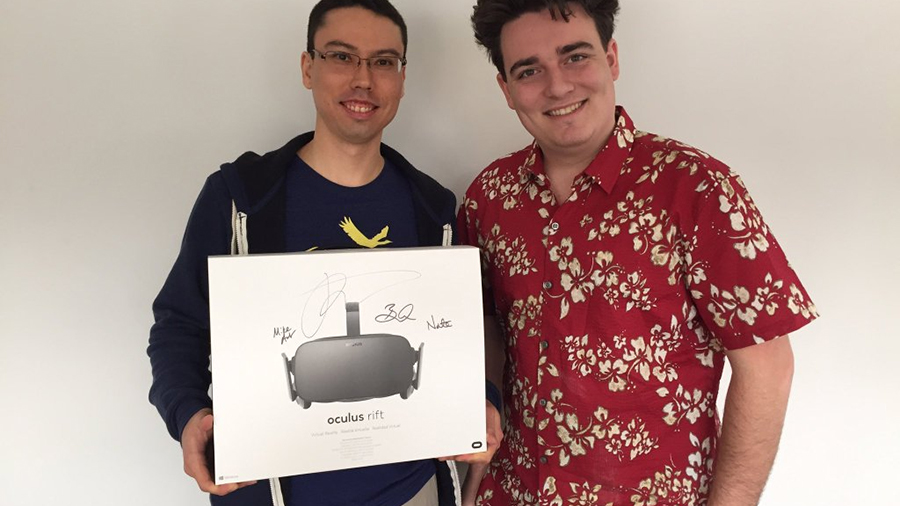Oculus Rift's Palmer Luckey heads to Reddit to tell haters why they're wrong
Wants to turn Rift haters into Rift raters

The founder of Oculus, Palmer Luckey, has defended his approach to public relations, saying that he will continue to publicly speak his mind even if he later has to change course, or it risks people taking his words out of context.
The comments come in response to a long list (12 at the time of writing) of charges levelled at him by Reddit user 'randomawesome'. Amongst the charges are the allegations that Luckey intentionally mislead consumers over the eventual price of the Oculus Rift headset, that he lied about scaling up production to meet demand and that he mislead customers over what pre-ordering the Rift would get them.
Palmer Luckey responded to the charges generally, saying that they were a mix of quotes taken out of context, as well as instances where a changing situation meant that he was justified in changing his approach.
Other allegations, such as one in which Luckey said the Rift would not use Fresnel lenses, he pointed out were untrue (the Oculus Rift uses hybrid optics).
Luckey refused to apologise for his attitude towards public relations. "Does shit change sometimes? Of course it does. Does that mean I am going to stop speaking my mind because people throw out of context words in my face years later? No, not really."
The reason? He doesn't want Oculus to fall pray to the "sterile, corporate communication" prevalent in the rest of the industry.
'Lack of transparency'
"The same people who complain about 'lack of transparency' and 'sterile, corporate communication' are so very often the same people who berate and hate companies and individuals for anything they ever say that changes at some point." he said.
Sign up for breaking news, reviews, opinion, top tech deals, and more.
It's likely that we'll continue to see more companies start to take this approach as platforms such as Kickstarter and Indiegogo put large projects into the hands of relatively inexperienced business people.
However, this more open approach has proved to be dangerous. Consumers often react angrily when plans change or products are cancelled, and in response the most common approach taken by established companies is to remain tight-lipped about future plans.
The launch of the Oculus rift has not been without its difficulties. First came the news that the headset would cost $599, which was significantly higher than many consumers (including several of our own Techradar staff) expected.
The price means the device is not likely to become mass market anytime soon, especially considering the kind of computer you'll need to run it.
The company has also faced criticism over hardware shortages, which has meant that many consumers have seen their orders delayed.

Jon Porter is the ex-Home Technology Writer for TechRadar. He has also previously written for Practical Photoshop, Trusted Reviews, Inside Higher Ed, Al Bawaba, Gizmodo UK, Genetic Literacy Project, Via Satellite, Real Homes and Plant Services Magazine, and you can now find him writing for The Verge.